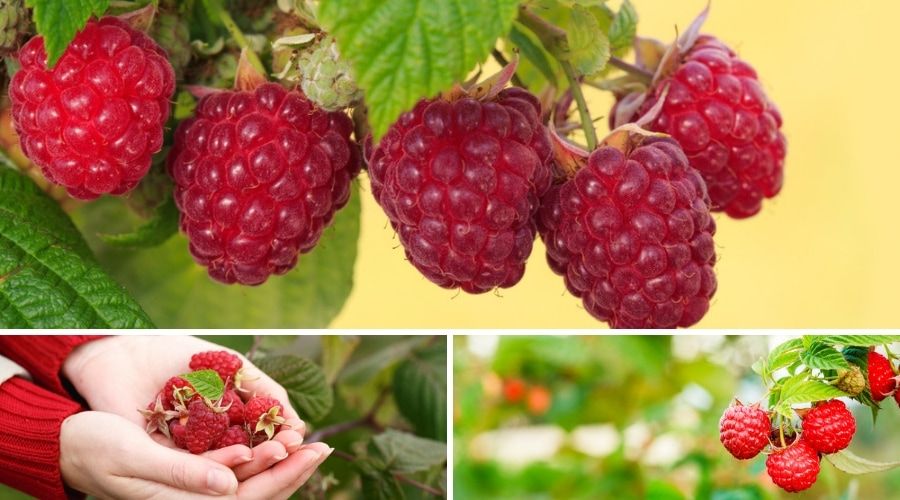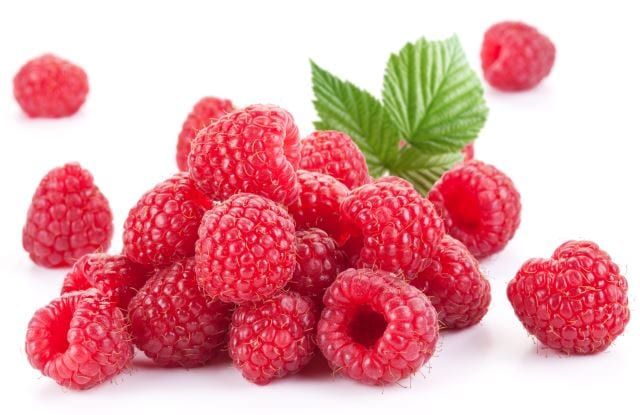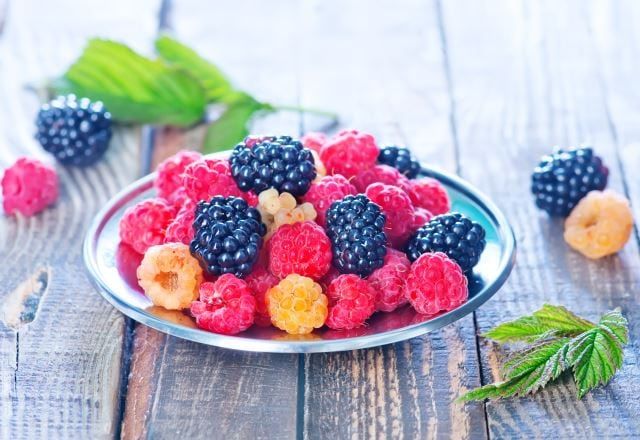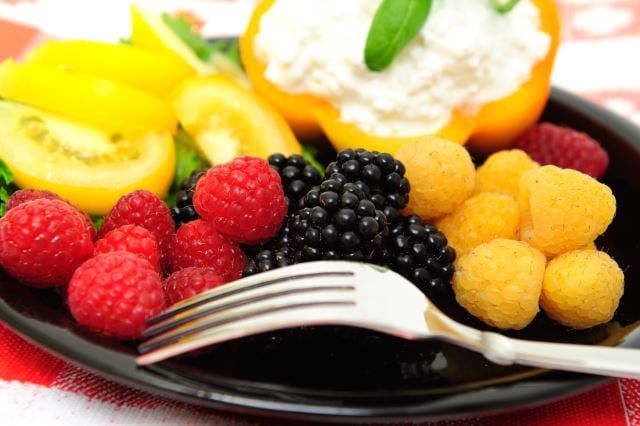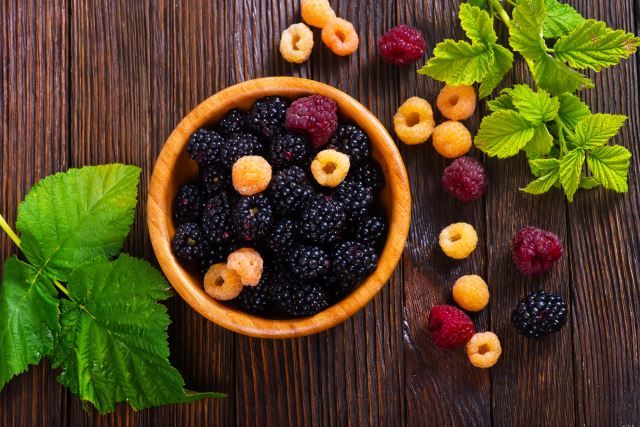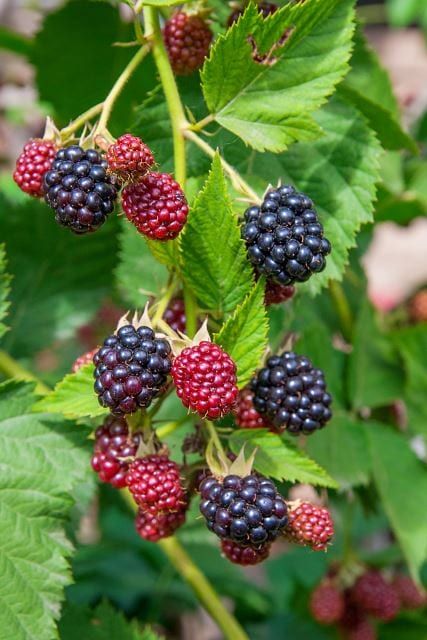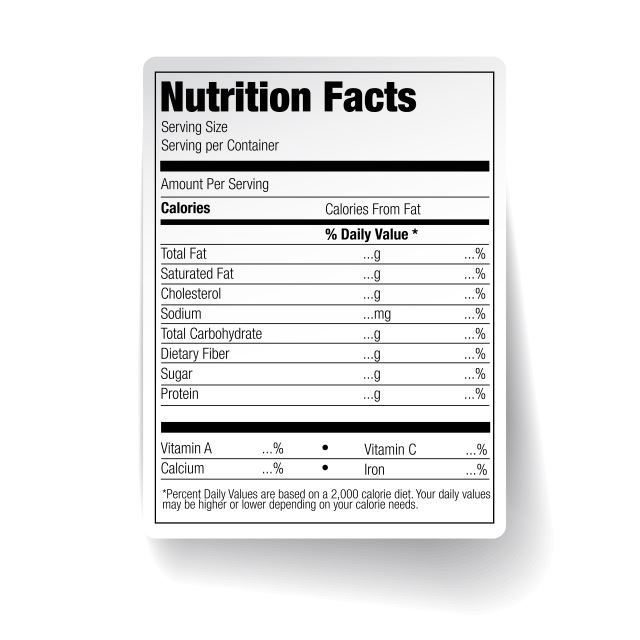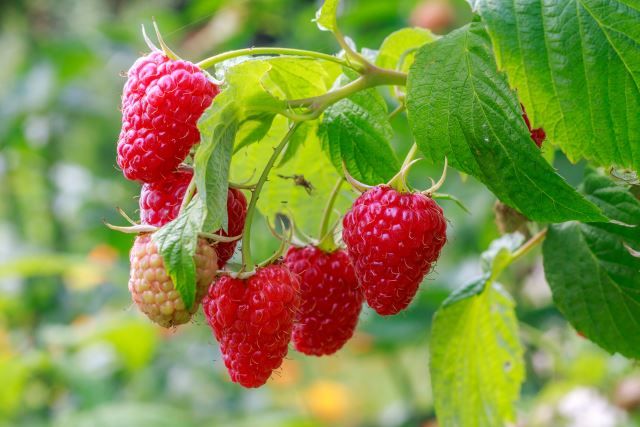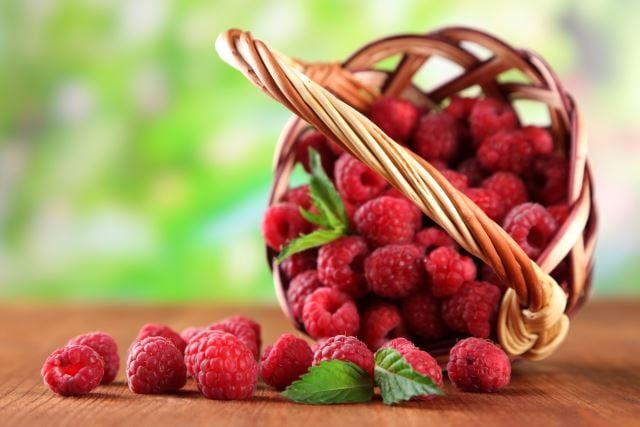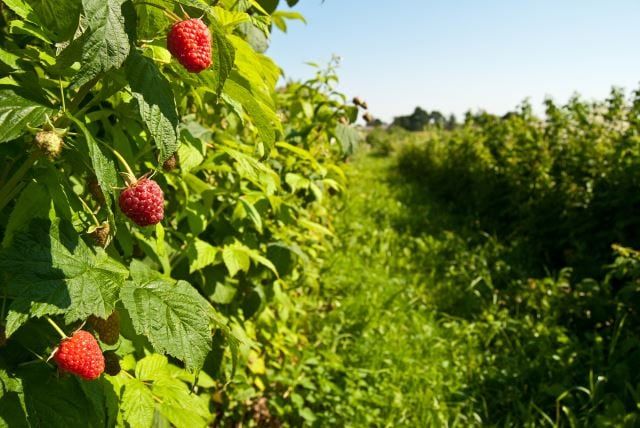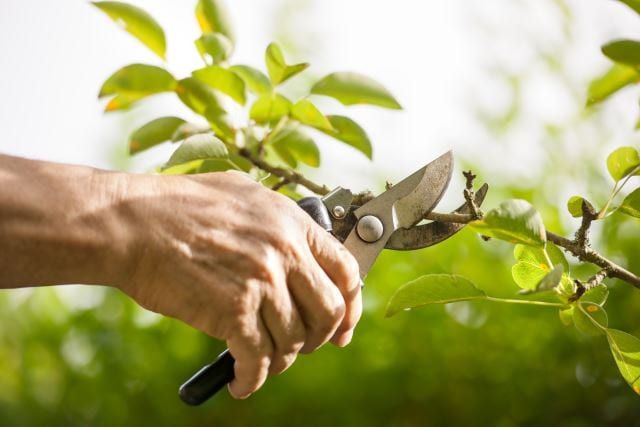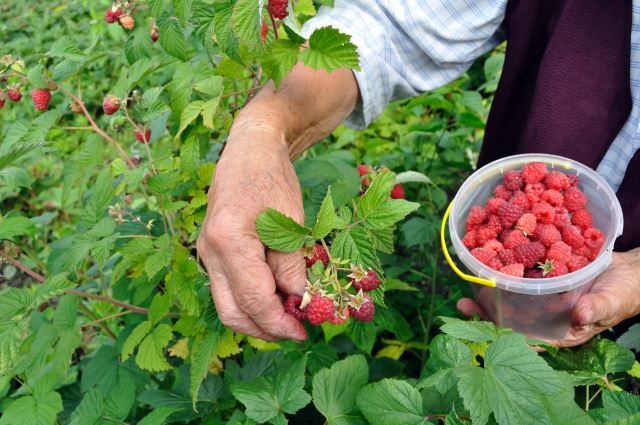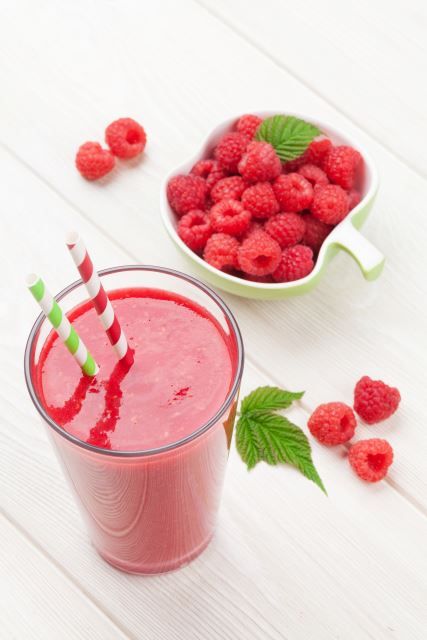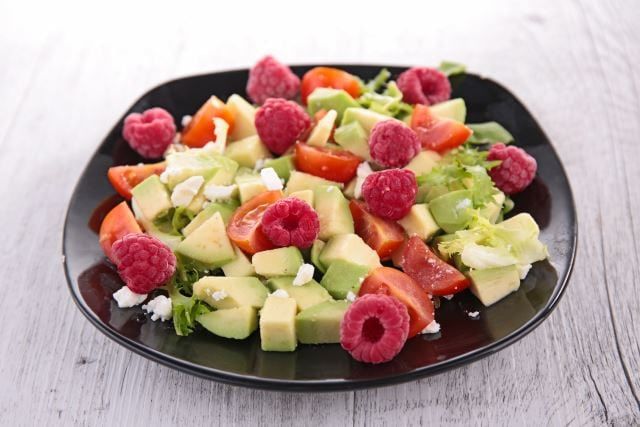Lemonade, cranberry juice, berry pies. These are just a few places you’ll find the use of raspberries really sweeten the taste of something on your palette. And ripe raspberries are a real treat that doesn’t sit too heavily on the stomach or fill up your daily calorie limit. But you can’t always find raspberries when you need them, and that can be bothersome. If you grow your own raspberries, you always know you’ll have some, fresh or frozen, to use in recipes when needed.
Raspberries also have a lot of health benefits that can make them an essential part of your diet. From cancer to digestion, raspberries play a part in your health. Take a look at where raspberries came from, what they are great for, and all the benefits you can get from eating them and using them in various recipes. But also how to grow raspberries and awesome raspberry growing tips!
Origin of Raspberries
Raspberries seem to have originated in Asia in prehistoric times, though some varieties, likely brought over by travelers and raised to adapt to the land, started in the United States. They’ve been important to the food chain for several millennia, supplementing the meat from the hunt with additional nutrition from gathering.
The first written mention of raspberries is in a 1548 English book of herbal medicine. Since then, raspberries have been widely bred, with a multitude of varieties and some cross breeding efforts. Today, the leading producers of the sweet berry are Poland, Russia, Yugoslavia, Germany, Chile, and the United States.
Raspberries are in the rose family of plants, meaning they are categorized with other delicious fruits such as cherries, apples, peaches, pears, apples, blackberries, plums, loquats, and strawberries. While there are more than 200 species of raspberries, they are typically sorted easily into three basic groups – red raspberries, purple raspberries, and black raspberries.
Flavor of Raspberries
Describing the flavor of any berry is difficult since we often use the way a berry tastes to describe certain other flavors. The best way to detail the taste of a raspberry is to say it’s sweet with a very subtle sharp tinge to it that may make you pucker more if they are less ripe. They have a soft texture that literally leads ripe berries to melt in your mouth, and they have beautiful coloring that varies by strain, including pink, red, purple, black, yellow, orange, and white. Hybrids cultivated from raspberries include boysenberries and loganberries.
Cultivation and Climate
Unlike many plants, raspberries can’t grow in warm climates. If the temperatures during the summer get too high, the process of photosynthesis stops for these berries, and you get a poor crop. Because of their sensitivity to heat, raspberries need to be in an environment where temperatures remain between 70 and 75 degrees Fahrenheit through the summer. Anything warmer will reduce production. At the same time, they need at least six hours of sun during the day, preferably in the morning.
Interestingly, with their penchant for lower temperatures, raspberries are also hardy and resilient in cold weather, surviving temperatures as low as -20 degrees Fahrenheit. In fact, the plant expects at least 800 hours of winter between the temperatures of 37 and 50 degrees Fahrenheit in order to thrive the following summer.
There are a few varieties that are heat tolerant, and a number of inland gardeners who experience warm summers opt to plant these for a higher yield. ‘Bababerry’ and ‘Oregon 1030’ are two cultivars that can really resist heat and perform well in warmer climates.
Choosing Your Variety
When it comes to determining which variety of raspberry you want to grow, you should look at the climate you’re in and how hardy each strain is, as much as you should consider the flavor. For example, yellow and red varieties of raspberry are the hardiest and easiest to grow with a good yield. They’re also very sweet. By contrast, black raspberries have more of that tang to them and are incredibly delicious, but they are also the least hardy of the bunch.
Purple strains fall somewhere between these two extremes, with a sweet, tangy flavor and a general hardy nature that still has some caveats to care and maintenance, especially in certain climates.
When you get ready to purchase your raspberry seeds, consider these guidelines based on the region in which you live. While they grow in regions 3 to 9 generally, not all strains will grow in all areas.
-
Northern regions – hardy raspberry species like Boyne, Nova, and Nordic.
- Southern regions – heat tolerant strains like Dorman Red, Bababerry, and Southland
- Early summer fruits – Algonquin and Chilliwack
- Autumn fruits – Bristol
- Everbearing – Autumn Bliss and Heritage
As you can see, you can have ripe berries producing all the way from early summer throughout the fall, if you choose the right varieties for your area and for the timing, blending the strains so that you have something producing fruits all through the seasons.
Great for Your Diet
Whether you’re trying to lose weight or just want to maintain a healthy balance with the right amount of calories and nutrition, raspberries are a great option. With low calories, you can rest assured you’ll kill that craving for sweets without going overboard on your daily intake.
One cup of raspberries has:
- 64 calories
- 1.5 grams of protein
- 15 grams of carbohydrates (but 8 grams of this are dietary fiber)
- Zero cholesterol
- Only trace amounts of fat or sodium
The amount of fiber alone is already a third of the daily recommendation for adults, and that can help with weight loss and perhaps even speed up your metabolism.
The same cup also provides high percentages of your daily recommended intake of:
- Vitamin C – 54%
- Vitamin K – 12%
- Folate – 5%
- Vitamin E – 5%
- Iron – 5%
- Potassium – 5%
- Manganese – 41%
Raspberries also have all of the following:
- Thiamin
- Riboflavin
- Niacin
- Pantothenic acid
- Vitamin B-6
- Calcium
- Magnesium
- Phosphorus
- Zinc
- Copper
On top of all these, you’ll find that raspberries contain other beneficial products, including antioxidants and polyphenols, which fight free radicals, including:
- Alpha-carotene
- Beta-carotene
- Lutein
- Zeaxanthin
- Choline
- Ellagitannins
- Anthocyanin
- Flavonols
As if that wasn’t enough, raspberries come with plenty of proven health benefits you’ll want to consider, breaking down the list one by one.
Benefits of Raspberries
One reason to grow your own raspberries and have them on hand is that they are incredibly helpful with a number of health issues. Take a look at some of the major issues that growing raspberry bushes can assist with.
Arthritis
Like ibuprofen and other anti-inflammatory products, raspberries naturally alleviate swelling, easing the pain of conditions and diseases like arthritis and gout. Researchers theorize that is due to the properties of the anthocyanins that give the berries their pigment, which turns off signals sent by specific enzymes that produce inflammation in response.
Antioxidants and Their Benefits
With the talk of antioxidants and cleaning your system of free radicals that have become so popular, we’ve learned in recent years the importance of foods high in antioxidants. Raspberries are extremely rich in this area, containing large amounts of vitamin C, carotenoids, ellagic acid, and quercetin, which help collect and destroy free radical molecules. In response, cancer growth slows or stops, and aging slows. In fact, studies are showing that some elements in raspberries – those that help relieve inflammation – could actually prevent cancer.
Memory Assistance
A number of studies have shown that a diet rich in flavonoids – such as those found in high quantities in raspberries – can stave off memory loss. In fact, the correlation was between the intake of raspberries and memory improvement. Other positive effects in this area include decreasing the amount of decline and loss experienced with age when it comes to cognitive ability.
Great for the Heart
According to the American Journal of Clinical Nutrition, the intake of berries rich in flavonoids is linked to a lower risk of dying from cardiovascular disease, partially due to the anti-inflammatory properties of raspberries. Other agents responsible for this include high polyphenol content (a substance that reduces blood pressure). In fact, studies show that regular intake of raspberries can reduce the risk of heart attack in young and middle-aged women by as much as 32 percent. The potassium found in raspberries is also good for your heart. Consuming 4 grams of potassium daily can lower the risk of death from ischemic heart disease by 49 percent.
Diabetic Control
Raspberries can help both type 1 and type 2 diabetics control their blood sugar levels better. The skin on raspberries is full of fiber, and a high fiber diet helps keep blood sugar under control. For type 1 diabetes, a high fiber diet reduces blood glucose levels, and for type 2 diabetes, it improves not only blood sugar but also lipid and insulin levels.
Digestion and Detox
The fiber in raspberries also has other benefits. It helps reduce instances of constipation and keeps a clearer digestive tract. This promotes regularity in bowel movements, making sure you excrete the toxins that would otherwise build up in your body. Fiber can also reduce inflammation, especially in your digestive system, which can help reduce the risk of inflammatory conditions such as cardiovascular disease, diabetes, cancer, and obesity. You’ll also be at a reduced risk of stroke, hypertension, and some gastrointestinal diseases. Another benefit of fiber in the raspberries is that it can help boost your immune system so you’re more resistant to infectious diseases.
Vision and Eye Health
Raspberries have special properties that protect against UV rays, which can help keep your eyes healthier. They are also infused with zeaxanthin, an antioxidant that filters out harmful blue light rays. This decreases damage from and progression of macular degeneration and can even reduce the risk of age-related macular degeneration.
Cognitive Abilities
The antioxidants in raspberries have a great effect on mental abilities, especially in relation to age. They help stave off disease and stave off brain damage and memory loss associated with aging. The flavonoids also decrease cognitive decline that occurs with age. Anthocyanin works with quercetin to reduce the chance of memory loss, and all antioxidants reduce stress levels, which aid in mental stability.
Fighting Cancer
Raspberries have tons of benefits when it comes to cancer. The antioxidants in raspberries, as well as the anti-inflammatory phytonutrients, have shown promise in lowering oxidative stress on the body, which alters the development and reproduction of cancer cells. Animal studies have proved this works to reduce the risk of breast, cervical, colon, esophageal, and prostate cancers. New research finds that phytonutrients can also change the signals sent to cancer cells, possibly programming cell death and thereby helping to cure cancer.
Additional Health Benefits
Raspberries have also been shown to improve other health factors, including:
- Enhancing fertility through protection of sperm and enhanced testosterone production in men
-
Protection of embryos post-fertilization to decrease miscarriages
- Shortening labor and improving healthy labor for women (raspberry leaves)
- Promoting healthy tissue and blood vessels that improve the look and health of skin and reduce aging
- Oxygenation of muscles and tissue by increasing the formation of red blood vessels
- Adding folate to hair for healthier, shinier look and feel, as well as silicon that thickens hair
- Reduce the occurrence of eczema which can damage skin
Planting Your Raspberries
Once you’ve identified which type of raspberries is going to grow best in your climate and selected the seeds that will grow in your area, you need to identify a location to plant them. You should choose an area that has both full sun and good air circulation, but it should also be sheltered from possible high winds. Make sure you aren’t within a thousand feet of blackberries or other brambles that could share diseases with raspberries. Soil should be fertile and well drained, and you shouldn’t share with tomatoes, eggplant, potatoes, other berries, peppers, or roses since these can also spread the disease to your raspberries.
For red and yellow raspberries, seeds should be planted two feet apart, allowing them room to grow and fill in over the next two years. Black and purple raspberries need even more room, so plant them three feet apart. Rows can be narrow, with 6 to 24 inches between them. This gives plenty of space for the canes to grow and sunlight to be absorbed.
In summer, keep the soil evenly moist but well-drained, and use mulch to discourage the growth of weeds in the berry patches. In late winter, you should use compost and a layer of balanced organic fertilizer to infuse your berry patch with nutrients, so you get the most fruit during the growing season.
You can propagate your raspberries with cuttings but be sure they are healthy before you start cutting. If you are unsure, purchase new seedlings or seeds that are certified to be disease free so that you can guarantee you aren’t spreading the disease further into your berry patch once you transfer them from in a pot.
Pruning Your Raspberries
You should prune your raspberry bushes regularly since this promotes healthy growth and increases the output of fruit. Each type of raspberry has a different need.
- Ever-bearers – Collect the single fall crop and then trim back all the old canes to ground level when the plants are done producing fruit.
- Summer-bearing – These red raspberries don’t produce until the second year. Cut down old, gray or brown fruit-producing canes once you’ve harvested but leave the new canes that have grown over the year to produce fruit the following year. At the end of winter, remove any very small canes and leave 3 to 6 sturdy ones every foot.
- Black and purple raspberries – These produce fruit on side branches growing on older canes. Cut off all fruit-producing canes after harvest during the summer. Snip the tips of new canes when they’ve grown to 3 or 4 feet in height. Remove the smaller canes during the dormant season, as with summer-bearing varieties, and cut off spindly side branches of the remaining canes, trimming any remaining branches so they are only 8 to 10 inches long.
Harvesting the Raspberries
You should harvest your berries when they are fully ripe and sweet to get the best flavor and the most benefit from nutrients and antioxidants. If you aren’t going to eat them promptly, you should freeze them or dry them for later use. You’ll notice that, even when fully ripe, you may find some resistance to picking. However, taste a berry prior to harvesting, since raspberries aren’t like other fruits that continue to ripen after picking.
You should harvest berries while coolest, early in the morning, and handle them gently. It’s best to make sure they’re dry when you pick them, so you have less risk of damaging them with slippery fingers. Place them carefully into a shallow container, careful not to drop them, since they are delicate and bruise easy. It’s easiest to use two hands to harvest, so tie your small sack to your waist if you can. Once harvested, refrigerate your raspberries immediately. You may want a separate container in which you can toss overripe or moldy berries as you pick them since you’ll inevitably find a few.
Preventing Disease
Raspberries are prone to a number of fungal diseases, especially powdery mildew. Anthracnose can also affect them, creating dark blotches on the cane of the plant. Pruning the plants can help prevent disease and definitely will keep it from spreading once identified.
Other viruses stunt the growth of raspberry plants and can cause curled leaves, crumbling leaves, and malformed berries. There is no cure for raspberry viruses, so you’ll have to dig them up and destroy them if you find such disease. Crown gall is another ailment, with symptoms showing as lumpy swelling on roots and plant bases. These should be destroyed, as well.
Borers and other pests can damage canes and cause their shoots to wilt. There will be a small entry hole near the base of the wilted part of the plant. You should prune off the damaged area and assure that the borer and all are removed.
In order to prevent disease, purchase only certified disease-free seeds and plants, and assure that you aren’t planting them too close to other plants that can share diseases with them. Also, you may choose to use organic pesticides. If you have one plant that gets infected, check all your canes to assure that it hasn’t spread. You want to remove any infected parts of plants as early as possible to prevent spread to the rest of the patch, and you may have to move some of your plants to a new area of your yard or garden in the case of serious infection, so they can continue to flourish without worry.
Raspberry Recipes
If you don’t want to just eat raspberries by themselves, there are plenty of ways to incorporate them into meals. Try fresh raspberries in concoctions like:
- Granola with fresh raspberries
-
Fresh raspberry and yogurt dessert
- Raspberry almond parfait
If you’re looking for something to dress up a meal, here are some options to try:
- Fresh raspberry vinaigrette dressing
- Raspberry marshmallow fluff salad
- Dark chocolate raspberry banana bread
- Barbecue raspberry chipotle taquitos
- Brie raspberry and honey grilled cheese
- Raspberry sour cream coffee cake
- Slow-cooked turkey with raspberry compote
- Raspberry sorbet
- Raspberry rhubarb jam
- Raspberry lemonade
- Sparkling raspberry iced tea
There are literally hundreds of recipes you can try, and you can even brew tea with raspberry leaves for health purposes.
The Bottom Line
Raspberries have numerous proven benefits and are a tasty way to get plenty of vitamins and essential nutrients into your diet. Especially the fiber content in the berry skin can aid in weight loss and controlling diabetic sugar levels. Antioxidants are great ways to avoid infectious diseases as well as age-related memory and cognitive problems and cancer.
Growing raspberries takes a little effort but having them available year-round when you want them is beneficial and can really help improve your diet and your overall health. Take care of your eyes, your skin and hair, your mind, and your body in general by growing raspberries and including them regularly in your diet.

